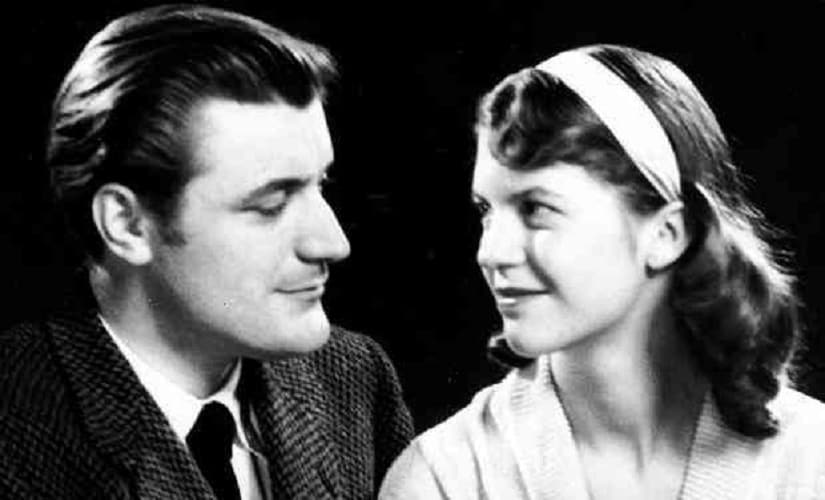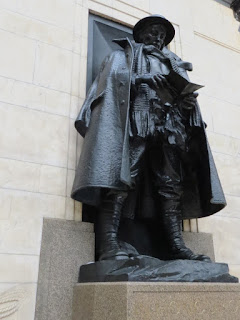Sylvia Plath
Sylvia Plath

The American writer Sylvia Plath was born in Massachusetts in 1932. Her father, a Prussian immigrant who had been an expert in bees and teacher of German at Boston University, died of undiagnosed diabetes when she was eight. She was a prodigiously hard-working school child, publishing her first poem also at the age of eight. She had written 50 short stories by the time she won a prize scholarship to Smith College, where she excelled academically and published poems and journalistic pieces.
She spent the summer of 1953 in New York, having been awarded a guest editorship at the magazine Mademoiselle, but suffered a breakdown on her return home and attempted suicide shortly afterwards. After undergoing treatment, she returned to Smith in 1954, graduated summa cum laude in June 1955, and was awarded a Fulbright scholarship to study at the University of Cambridge between 1955 and 57. There, she met the poet Ted Hughes, whom she married on 16 June 1956, James Joyce’s ‘Bloomsday’.
In 1957 Plath was appointed to a teaching post at Smith, and the couple moved to America, though she did not enjoy the work. She told her friend Al Alvarez that meeting Robert Lowell and reading his Life Studies (1959) allowed her to make a ‘breakthrough’ into writing about ‘very serious, very personal emotional experience, which I feel has been partly taboo’. The example of the poet Ann Sexton allowed her to adjust it to a female perspective. In 1959, Plath and Hughes returned to live in England. The following year Plath published The Colossus in England and began to write the first poems that would later be collected in Ariel.
In 1961 Plath began to write The Bell Jar, her only published novel. As the critic Sarah Churchwell writes, The Bell Jar, set in the previous decade, ‘is an acidic satire on the madness of 1950s America, exploring the impossibility of living up to the era’s contradictory ideals of womanhood’. Published under the pseudonym Victoria Lucas in January 1963, the novel was partly based on Plath’s own life and experience of mental illness. Though the work was largely ignored at the time, it has subsequently come to be regarded as one of the most important novels of the 20th Century.
1962 was an important year for Plath’s work; the collection The Colossus was published in America, her play Three Women was broadcast on BBC radio, and she produced the majority of the poems for Ariel, which would become her most critically acclaimed work. After her separation from Ted Hughes that autumn, Plath and her children stayed in Devon before moving to London in December of the same year where she wrote at dazzling speed, sometimes producing three Ariel poems in a day.
On 11 February 1963 Plath took her own life. Ariel, her second collection of poems, was published in a version edited by Hughes in 1965. It secured Plath’s reputation as one of the most original and gifted poets of the 20th century. The collection has since been re-edited following Plath’s own selection and arrangement of poems. Plath’s Collected Poems, published posthumously in 1981, was awarded the Pulitzer Prize.
Further information about the life of Sylvia Plath can be found here via the Oxford Dictionary of National Biography.
https://www.firstpost.com/entertainment/sylvia-plaths-unpublished-letters-alleging-ted-hughes-of-domestic-abuse-found-3385984.html
https://www.firstpost.com/entertainment/sylvia-plaths-unpublished-letters-alleging-ted-hughes-of-domestic-abuse-found-3385984.html



Comments
Post a Comment